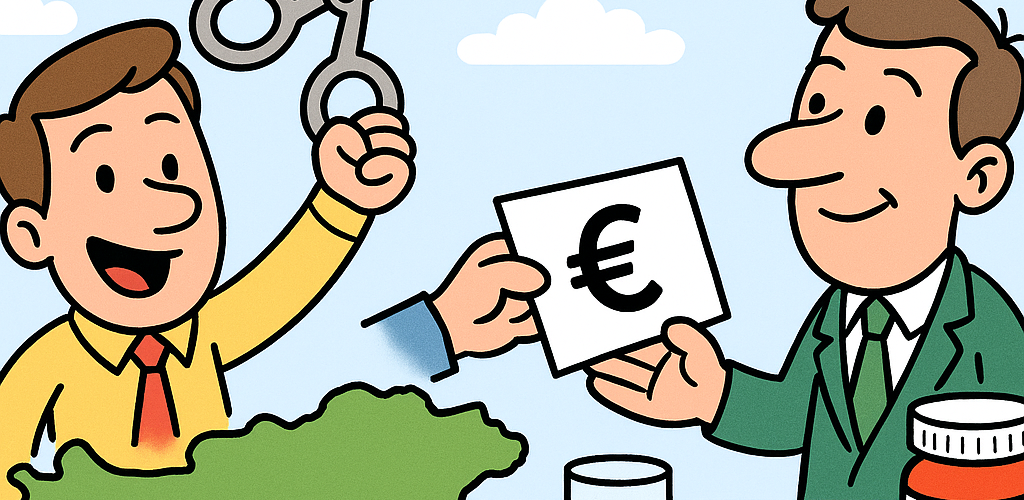Briefing Document: Analysis of Case C-717/19 (Boehringer Ingelheim v. Hungary)
1. Subject Matter
This document analyses a judgment from the Court of Justice of the European Union (CJEU), Case C-717/19, Boehringer Ingelheim RCV GmbH & Co. KG Magyarországi Fióktelepe v Nemzeti Adó- és Vámhivatal Fellebbviteli Igazgatósága, concerning the interpretation of Article 90(1) and Article 273 of Council Directive 2006/112/EC (the VAT Directive).
2. Key Issues & Themes in Case C-717/19
The case revolves around the right to reduce the taxable amount for VAT purposes when a pharmaceutical company (Boehringer Ingelheim) makes payments to the Hungarian State health insurance agency (NEAK) under “funding volume agreements.” The Hungarian tax authority denied Boehringer Ingelheim the right to deduct these payments from its taxable VAT amount. The referring court sought clarification from the CJEU on whether this denial was compatible with EU law.
The core themes are:
- Reduction of Taxable Amount (Article 90(1) VAT Directive): The central question is whether payments made by a company to a state health insurance agency constitute a “reduction of the price after the supply takes place,” thereby entitling the company to a reduction in its taxable VAT amount. The court considered that “where the price is reduced after the supply takes place, Article 90(1) of the VAT Directive provides that the taxable amount is to be reduced accordingly under conditions to be determined by the Member States.”
- Conditions for Reduction & Member State Discretion: The case examines the extent to which Member States can impose conditions on the right to reduce the taxable amount. The Hungarian legislation required that payments be “for promotional purposes” and “set out in advance in [the company’s] commercial policy,” which Boehringer Ingelheim’s payments did not meet. The court stated that “…the Member States have, however, an obligation to allow the reduction of the taxable amount in the cases referred to by that provision”.
- Fiscal Neutrality: The CJEU reiterates the principle of fiscal neutrality, stating that “It would not therefore be in conformity with the VAT Directive for the taxable amount used to calculate the VAT chargeable to the pharmaceutical company, as a taxable person, to exceed the sum finally received by that company. If that were the case, the principle of neutrality of VAT vis-à-vis taxable persons, of whom the pharmaceutical company is one, would not be complied with.” The court noted that VAT is intended to tax only the final consumer and should be neutral for taxable persons involved in production and distribution.
- Administrative Obligations & Proportionality (Article 273 VAT Directive): The case also addresses whether national legislation can require a specific form of documentation (an invoice) for the reduction of the taxable amount, even when other forms of proof are available. The court found that “Article 90(1) and Article 273 of the VAT Directive must be interpreted as precluding a national law under which the subsequent reduction of the taxable amount for VAT is subject to the condition that the taxable person entitled to the refund has an invoice in the relevant name providing proof of the transaction giving entitlement to that refund, even where such an invoice has not been issued and where proof of that transaction may be established by other means.”
3. Key Facts & Arguments
- Boehringer Ingelheim made payments to NEAK under “funding volume agreements” to ensure their medicinal products were subsidised. These agreements were not legally required.
- NEAK did not issue invoices for these payments, only requests for payment.
- Hungarian law required that VAT reductions for price reductions be for promotional purposes and predetermined in the company’s commercial policy.
- Boehringer Ingelheim argued that the payments to NEAK effectively reduced the price of their products and that they should be entitled to reduce their taxable VAT amount accordingly.
- The Hungarian tax authority argued that the payments were not for promotional purposes (advertising of subsidised medicines being prohibited) and that the terms weren’t predetermined by Boehringer Ingelheim’s commercial policy.
4. CJEU’s Ruling
The CJEU ruled in favour of Boehringer Ingelheim, stating that:
- Article 90(1) of the VAT Directive does preclude national legislation that denies a pharmaceutical company the right to reduce its taxable VAT amount based on payments to a state health insurance agency simply because the payments weren’t for promotional purposes or predetermined in the company’s commercial policy.
- Article 90(1) and Article 273 of the VAT Directive do preclude national legislation that requires an invoice as the sole proof of a price reduction, especially when other evidence exists to verify the transaction.
5. Implications of the Ruling
The ruling clarifies the scope of Article 90(1) of the VAT Directive and the limits of Member States’ discretion in implementing conditions for reducing the taxable VAT amount. It reinforces the principle of fiscal neutrality and emphasizes that VAT should only tax the final consumer. It also confirms that Member States cannot impose disproportionate administrative burdens (like requiring an invoice when other proof is available) that effectively deny taxable persons their right to a VAT reduction.
See also
- C-717/19 – Boehringer Ingelheim – Reduction of the taxable amount – Agreement between pharmaceutical company and health insurer
- Roadtrip through ECJ cases: Focus on Promotional activities/Discounts (Art. 79, 87, 90(1)) – VATupdate
- Join the Linkedin Group on ECJ/CJEU/General Court VAT Cases, click HERE
- VATupdate.com – Your FREE source of information on ECJ VAT Cases
Latest Posts in "European Union"
- ECJ State Aid C-360/25 (X) – Questions – Does the exemption under art. 135(1)(d) of the VAT Directive constitute State Aid?
- EU and Indonesia conclude negotiations on free trade agreement
- ECJ Case: VAT Treatment of Loyalty Points vs Vouchers Under EU Directive
- FISC Hearing on Tax Implications of Trump Administration Policies September 23
- VAT Rules for Virtual Game Currencies: EU Court Advocate General Opinion














